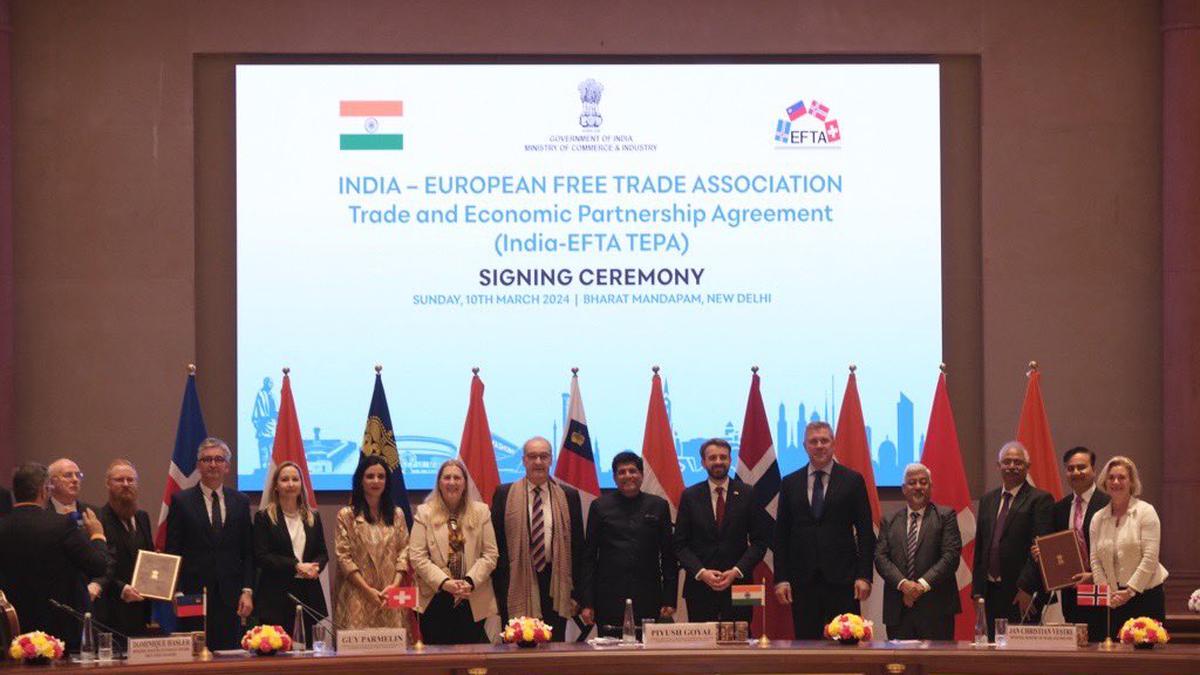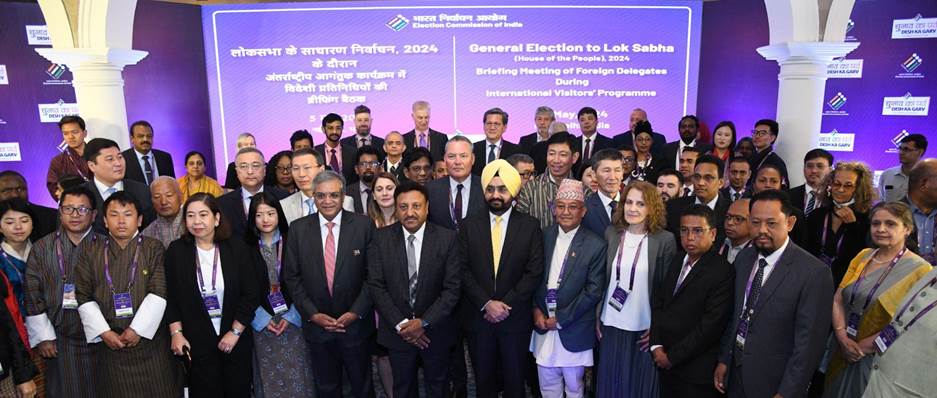India inks $100 Billion Free Trade Agreement with EFTA Bloc
Author: BI Bureau

New Delhi: India and the four-nation European bloc EFTA signed a free trade agreement on March 10, 2024, marking a significant milestone. Under this agreement, New Delhi secured an investment commitment of USD 100 billion over 15 years from the grouping. This investment is poised to generate 1 million direct jobs in India. Notably, the European Free Trade Association (EFTA) comprises Iceland, Liechtenstein, Norway, and Switzerland.
Prime Minister Narendra Modi hailed the signing as a "watershed moment," highlighting its significance in fostering open, fair, and equitable trade relations. Federal Councillor Guy Parmelin, representing the EFTA member states, emphasized the mutual benefits of the agreement, noting that EFTA countries gain access to a thriving market while India attracts more foreign investment.
The commitment of USD 100 billion, a first in India's trade deals, is a cornerstone of the Trade and Economic Partnership Agreement (TEPA). It took nearly 16 years to conclude, symbolizing the extensive negotiations involved. Piyush Goyal, India's Commerce and Industry Minister, emphasized the historic nature of the agreement, citing the binding commitment and job creation prospects.
The agreement focuses on facilitating investments by providing legal certainty in terms of tariff regimes and regulations. In return for market access, India receives duty concessions on several products, including processed agricultural items. Sensitivities regarding certain sectors such as dairy and sensitive agricultural products are carefully considered.
Switzerland, a key trading partner within EFTA, already enjoys zero customs duties on most industrial goods, presenting limitations in goods categories. However, India stands to benefit from duty concessions on high-quality Swiss products over a ten-year period.
In the services sector, India offers access to various sub-sectors, including accounting, business services, and health, while securing commitments from EFTA nations in return. This agreement also addresses India's interests in generic medicines and patent concerns.
Moreover, the pact opens avenues for Indian exporters to integrate into EU markets, leveraging Switzerland's position as a gateway. It also facilitates technology collaboration and access to leading-edge technologies in various sectors.
The implementation of the agreement is expected to take up to a year due to the complex ratification process across different countries. With 14 chapters covering areas such as trade in goods, intellectual property rights, and investment promotion, TEPA is comprehensive in scope.
Norwegian Minister of Trade and Industry Jan Christian Vestre expressed optimism about the agreement, highlighting the growing interest of Norwegian companies in India. Norway plans to establish an EFTA office in India to support companies seeking investment opportunities.
Under TEPA, Norway commits to reducing tariffs on 98% of Indian exports to zero within the next five to ten years. This agreement marks India's 14th trade deal, its first with developed countries from the Western Hemisphere.
India-EFTA bilateral trade stood at USD 18.65 billion in 2022-23, with Switzerland accounting for the majority. However, there was a decline compared to the previous fiscal year, with a significant trade deficit. /BI/



